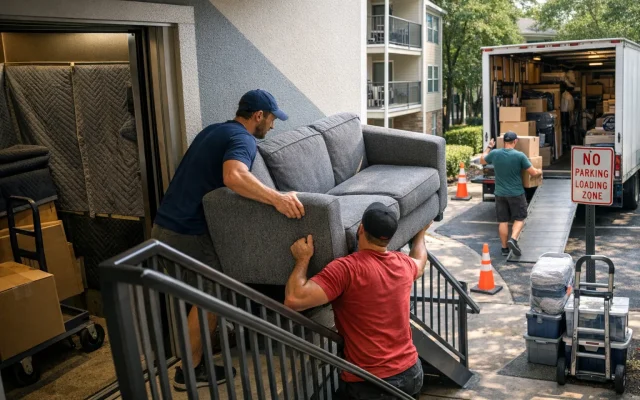Austin, Texas, has become one of the most talked-about cities for homebuyers in recent years. With a strong job market, creative culture, and growing tech scene, it’s easy to see why so many people are looking to settle down in this part of the state. Whether you’re a long-time resident or relocating from another city, buying a home in Austin means entering a competitive and fast-moving market. If you’re thinking about working with a real estate agent, it helps to come prepared.
The more informed you are before that first meeting, the easier it will be to communicate your needs and get the kind of help you’re actually looking for. Doing a little research ahead of time can save you time, money, and stress. From understanding the local market to getting your finances in order, here’s what you should know before sitting down with a real estate agent in Austin.
1. Understand the Local Housing Market
Austin isn’t a one-size-fits-all market. Every neighborhood offers something different—whether it’s access to public parks, newer homes, or proximity to downtown. That also means prices vary a lot from one area to the next. What fits in your budget in one part of the city might not work somewhere else.
Start by looking at listings online. Pay attention to what homes are selling for and how long they stay on the market. This will help you get a feel for how competitive things are in the areas you’re interested in. Some neighborhoods see quick sales with multiple offers, while others might give you a bit more room to think.
It’s also a good idea to think about your monthly costs. While home price is a big piece, monthly mortgage payments are what really shape your day-to-day budget. That’s why looking at the average mortgage in Austin Texas can help you prepare. It gives you a realistic idea of what buyers are usually paying per month. This number can help guide your expectations when you talk to your agent about your price range.
Having a basic understanding of current mortgage trends also puts you in a better position when it comes to choosing financing. You’ll feel more confident asking the right questions and less likely to be caught off guard when your agent starts talking about numbers.
This step isn’t about knowing everything. It’s about having enough background to take part in the conversation and make informed choices once you start house hunting.
2. Check Your Credit and Get Your Finances in Order
Before you meet with a real estate agent, take time to look at your finances. Your credit score plays a big role in the kind of loan you’ll qualify for, which affects your interest rate and monthly payment. A small difference in your score could mean hundreds of dollars over the life of a loan.
Start by checking your credit report. You can get a free copy from the major credit bureaus once a year. Look for any errors or outdated information that might bring your score down. If you find something, you can dispute it and request a correction. That alone might give your score a small bump.
Next, get a clear picture of your current income and debts. Lenders will look at your debt-to-income ratio, so knowing how much of your income goes toward existing payments can help you estimate what you might qualify for. Having recent bank statements, pay stubs, and a list of monthly bills ready makes the process smoother when it’s time to apply for a loan.
If you’re planning to use savings for a down payment, figure out how much you can comfortably use without draining your account. Agents don’t need all your financial details, but being prepared will help them match you with homes that fit your budget.
3. Get Pre-Approved, Not Just Pre-Qualified
A lot of buyers mix up pre-qualification and pre-approval, though they mean different things. Pre-qualification is typically a basic estimate that comes from the financial details you provide to a lender. Pre-approval takes it a step further—it’s a more detailed look at your finances based on verified documents.
Getting pre-approved shows that a lender is willing to work with you, based on your credit, income, and savings. It gives you a specific loan amount and a better idea of what kind of home you can afford. When your agent knows this number, they can focus your home search more effectively.
Sellers also take pre-approved buyers more seriously. In a market where homes may go under contract quickly, this extra step gives you an edge. It tells the seller that you’re ready to move forward and not just browsing.
Some lenders offer quick online pre-approvals, while others require a meeting. Either way, completing this step before talking to an agent shows that you’re serious and ready to act.
4. Make a List of Wants vs. Needs
It’s easy to dream about a perfect home, but most buyers have to make trade-offs. Before you start visiting properties, think about what you truly need and what you can be flexible about. Do you need three bedrooms, or could two work if there’s extra living space? Is a large backyard important, or would a small patio do the trick?
Create a list with two columns: one for must-haves and one for nice-to-haves. Share this with your agent during your first meeting. It gives them a better idea of what to look for and helps them avoid showing homes that won’t work for you.
Being clear about your priorities early can save time and reduce frustration during the search.
5. Be Ready to Ask the Right Questions
Once you sit down with a real estate agent, be ready to ask questions. This helps you understand the process and also helps build trust. Good questions include:
- How long do homes stay on the market in this area?
- What’s the typical offer-to-list price ratio?
- How do inspections and appraisals usually go in this city?
- How competitive is the current market?
You don’t need to quiz them, but being curious helps you stay informed. An open conversation goes a long way in creating a productive working relationship.
Meeting with a real estate agent is an important step in the home-buying journey. But taking time to prepare before that first meeting gives you a real advantage. When you understand the market, know your financial position, and come with clear goals, you give your agent the tools to help you more effectively.
Buying a home takes time, patience, and planning. Starting strong makes the rest of the process a lot smoother and brings you one step closer to finding the home that fits your life.
Frequently Asked Questions (FAQs)
Researching the market helps you understand price ranges, competition, and neighborhood differences. This makes it easier to set realistic expectations and communicate clearly with your agent.
It gives you a realistic idea of monthly costs and helps guide your price range discussions with your agent. Understanding mortgage trends also makes financing conversations smoother.
Your credit score affects the loan type, interest rate, and monthly payments you qualify for. Even small improvements can save you thousands over the life of your mortgage.
Pre-qualification is an informal estimate based on self-reported finances, while pre-approval involves verified documents and gives you a firm loan amount. Pre-approval shows sellers you’re serious.
It helps your agent focus on properties that truly fit your lifestyle and budget. This saves time and avoids viewing homes that won’t meet your essential needs.
You can ask about market trends, how long homes stay listed, offer-to-list price ratios, and common challenges in inspections or appraisals. These questions build trust and clarity.
Preparation ensures you understand the market, your finances, and your goals. This allows your agent to work more efficiently and increases your chances of finding the right home quickly.







